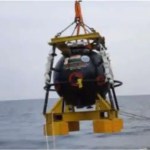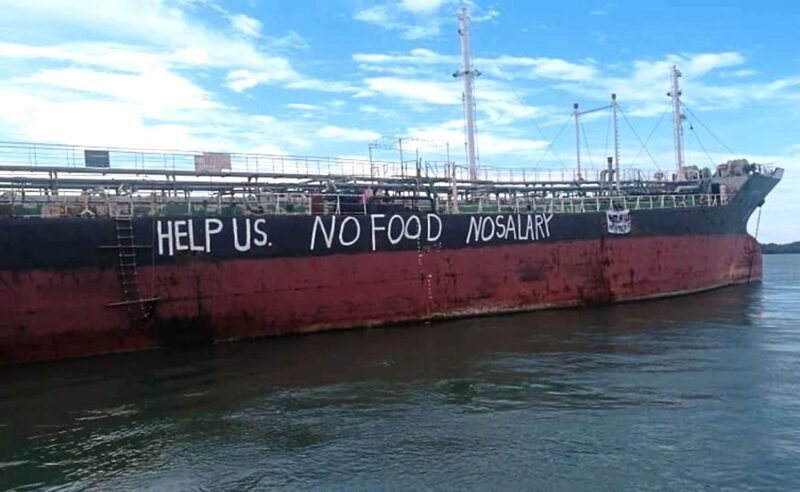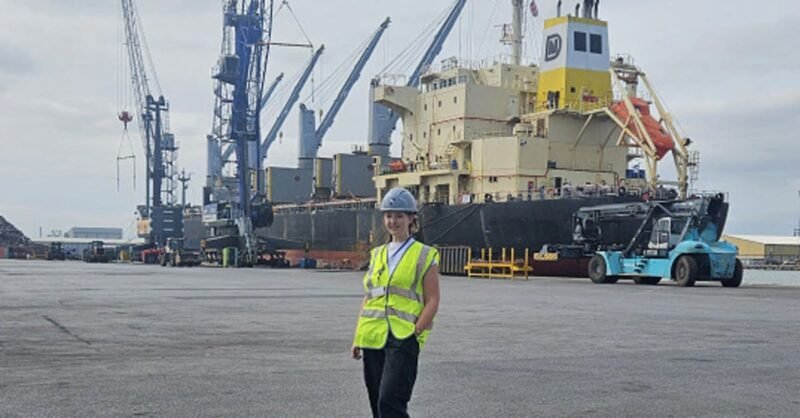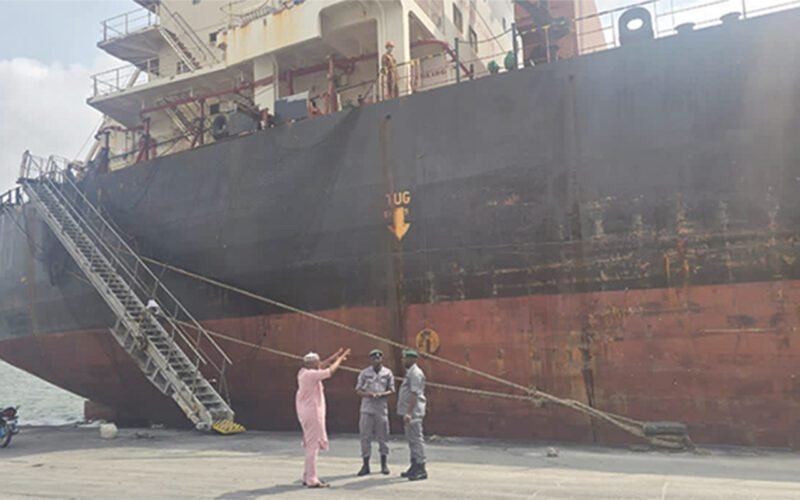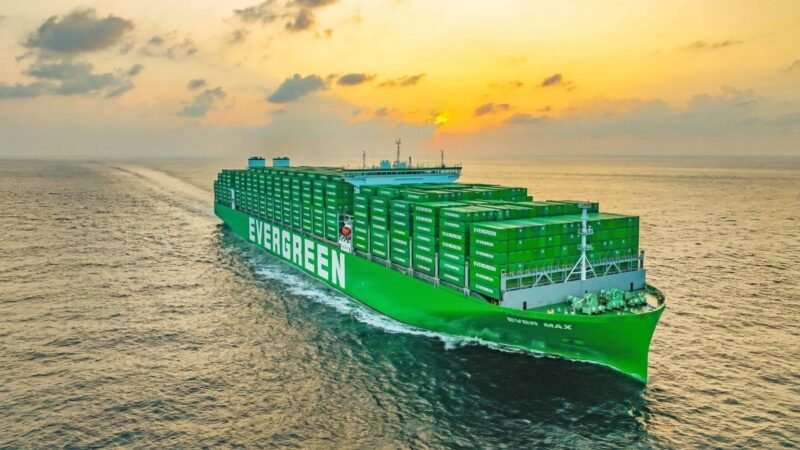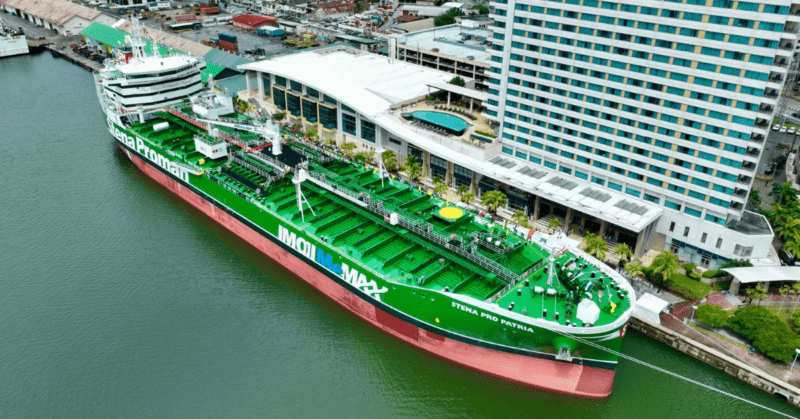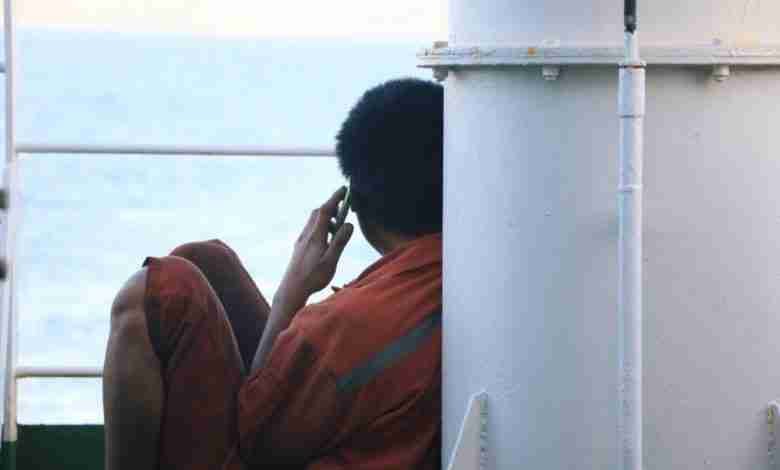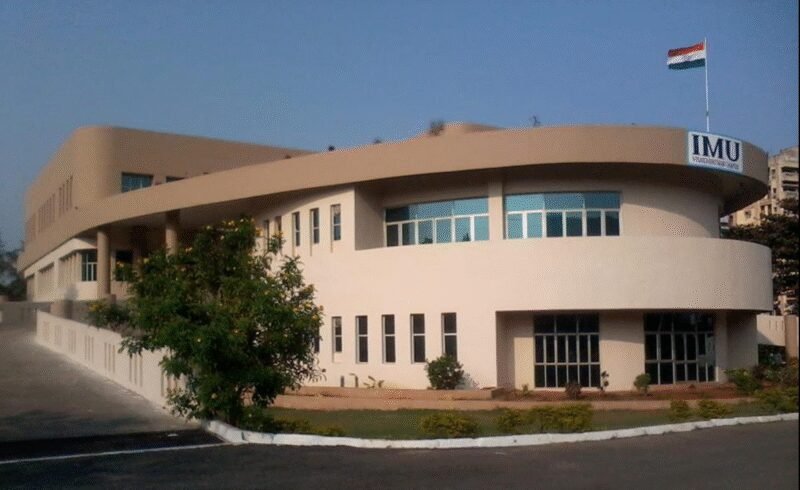Following Stories compiled in this News Digest for the week from 21 Nov 2022 to 27 Nov 2022 in descending order:
- ICS Calls for Nigeria to Release Crew of Heroic Idun
- EU Weighs Plans to Impose Rules on NGO Migrant Rescue Ships
- Indian Maritime University and Batangas State University boost ’blue economy’, seafaring engagement
- Startup Plans Alternative to Panama Canal with Automated Maglev System
- Chief Engineer takes over his sinking ship in the US after Captain collapses
- Inability to retain seafarers can endanger maritime’s green transition
- Made-in-India Container Ships likely next year
- Greater safety through better communication at sea
- Inmarsat unveils next-generation maritime safety terminal
- The proposed Kra Canal: Maritime highway of the future
- US calls on the Houthis to stop threats to international maritime trade
- Going paperless using blockchain technology
- In a first, Indian technology to drive pollution control ships
- Norway Needs Tech for World’s First Ship Tunnel
- US to deploy Over 100 unmanned vessels in Gulf region’s strategic waters
- Engineer on Tanzanian-Registered Ship is Unpaid for Seven Years -ITF
ICS Calls for Nigeria to Release Crew of Heroic Idun
26 Nov 2022
The International Chamber of Shipping (ICS) is the latest organization to call for an immediate release from detention of the crew of the oil tanker Heroic Idun who are now being held in Nigeria and scheduled to go on trial in January.

The seafarers are currently being held in Nigeria and face charges for alleged involvement in oil theft and “faking a piracy attack” in breach of Nigeria’s Suppression of Piracy and Other Maritime Offences Act. The crew of 26, mostly consisting of Indian and Sri Lankan seafarers, were arraigned by Nigeria on the charges in mid-November after the incident which took place at the beginning of August. They had been detained at the request of Nigeria in Equatorial Guinea for nearly three months before the tanker was ordered to return to Nigeria despite efforts by the Flag State and others to prevent their return to Nigeria to face the charges.
The ICS is urging for a swift and appropriate resolution to ensure the well-being and safety of all the crew. They are emphasizing that the treatment and welfare of the 26 crew members is of utmost importance with several of the crew suffering from typhoid fever and malaria.
They are citing the shipping companies’ statements that no unlawful activity was taking place and that vessel had the appropriate clearances to load oil from the Akpo offshore terminal in Nigeria. Reference
EU Weighs Plans to Impose Rules on NGO Migrant Rescue Ships
26 Nov 2022
European Union interior ministers on Friday weighed proposals to ease tensions between France and Italy over migrants arriving on their shores without authorization, including a possible crackdown on charity-run ships doing search and rescue work in the Mediterranean Sea.

In recent weeks, several hundred people hoping to enter Europe have been stranded at sea aboard aid ships while countries bicker over whether and where they should be allowed to disembark.
A diplomatic row erupted earlier this month when Italy maneuvered France into accepting a humanitarian rescue ship, the Ocean Viking, with 234 migrants aboard. France retaliated by suspending its participation in an EU solidarity pact to accept around 3,000 people, in a process known as “relocation,” who had arrived this year in Italy, and sent officers to reinforce its southern border crossings and prevent migrants from entering.
The EU’s executive branch, the European Commission, has tabled an action plan. Part of that plan involves the idea of imposing tighter rules on ships doing search and rescue work. Reference
Indian Maritime University and Batangas State University boost ’blue economy’, seafaring engagement
26 Nov 2022
Part of efforts in strengthening the bilateral engagement on the “blue economy” and maritime sectors between the Philippines and India, a memorandum of understanding (MOU) was signed between the Indian Maritime University (IMU) of Chennai and the Batangas State University (BatStateU).

The MOU was signed by Dr. Malini V. Shankar, vice chancellor of the IMU and Dr. Tirso A. Ronquillo, who is the president of BatStateU, in the presence of the ambassador of India to the Philippines Shambhu S. Kumaran.
In her remarks, Dr. Shankar highlighted that initial focus will be in the field of naval architecture and ocean engineering, which subsequently could be expanded to marine engineering, nautical science and management.
Welcoming the signing of MOU, Dr. Ronquillo said that a number of programs could be conducted under the collaboration in the field of marine science, marine biodiversity, as well as port and logistics management.
Focus areas identified for engagement will start with Naval Architecture and Marine Engineering, Port Management and Marine Biodiversity. The MOU will also facilitate exchanges of best practices, as well as visits by scientists and technologists from both countries. Reference
Startup Plans Alternative to Panama Canal with Automated Maglev System
25 Nov 2022
A Florida-based startup is proposing a fully automated container transport system that would whisk containers via a tunnel across the Isthmus of Panama using Maglev technology. According to the company, Zergratran, its Puerto Internacional Las Americas (PILA) would provide a critical new container shipping route to avoid the bottlenecks at the Panama Canal as well as a distribution point for Colombia, Central, and South America.

Started in 2019, Zergratran’s concept calls for a tunnel that would stretch 80 to 100 miles across northern Colombia just south of the Panama Canal. It would provide container transportation between the Gulf of Uraba on the Atlantic coast and Jurado on the Pacific coast of Colombia. The company highlights that the Gulf is already emerging as a key container handling area with three terminals planned by CMA CGM, Hyundai, and a group of Brazilian investors.
As shown in a rendering, the ports would have covered berths where containership would discharge or load containers that would be automatically moved to a transport system. The transport system would be based on Maglev technology, a widely used term for a variety of technologies that use magnetic levitation where one set of electromagnets pushes the train above the track and a second set pulls the train forward.
They project that pre-feasibility will last for about a year, followed by 12 to 18 months to complete feasibility studies at a cost of $500 million. Zergratran plans to seek government funding from Colombia or alternately says the project could be built at a cost of $15 billion. Reference
Chief Engineer takes over his sinking ship in the US after Captain collapses
25 Nov 2022
It was a miraculous escape for several Indian crew members on Thursday when MV Norfolk, a merchant navy vessel, got grounded, risking potential environmental disaster in Houston, USA. However, at this critical juncture, Allwyn Jorge, the Chief Engineer onboard the vessel, displayed courage by taking over the command and brought the ship to berth safely at Houston port.
He said that all the Indian crew members are safe onboard the ship.
The authority at the Houston has appreciated the courageous efforts of Jorge for taking the command of the ship and preventing an environmental disaster from occurring in the US.
Recalling the incident Jorge said, “MV Norfolk, a merchant navy vessel with Indian crew onboard had a miraculous narrow escape after its main engines failed to respond from the Bridge when manoeuvring in a very narrow channel while berthing in Houston port at a time when its Captain collapsed on the Bridge due to shock.”
He said upon the orders from the US pilot he took over the command of the vessel and by manoeuvring the main engines in close quarter situations on emergency controls, and brought the ship to berth safely at Houston port. Reference
Inability to retain seafarers can endanger maritime’s green transition
25 Nov 2022
A recent report concluded that an inability to attract and retain seafarers can pose a significant challenge to the maritime industry’s transition.

As DNV explained, both the interviews and the literature review underscored that attracting and retaining seafarers will be a challenge when it comes to implementing new onboard decarbonization-related technologies.
Indeed, a study conducted by Menon anticipates increasing competition to recruit relevant personnel, in particular personnel with digital and technological competence. Against this backdrop, the EU SkillSea study comments that shipping’s employment problem is that it is seen as lowtech compared with sectors such as the aviation, automotive and technology industries.
Many interviewees further pointed out that recent global crises have resulted in a higher turnover of seafarers globally. The backlog from this turnover may dog the industry for years to come and may put additional pressure on Ship Operators, training centres and seafarers in the short-term during the transition to alternative fuels.
Similar challenges are echoed in the relevant literature. According to a study released by ICS and BIMCO (2021), when recruiting STCW certified seafarers.
The report highlights a current shortfall of 26,240 STCW-certified officers, indicating that demand for seafarers in 2021 has outpaced supply. Reference
Made-in-India Container Ships likely next year
24 Nov 2022
Indian exporters, who have suffered setbacks from Covid and Ukraine war led supply chain disruptions, are excited at the prospects of sending their consignments on made-in-India container ships by next year.

The country is expected to build some 47 container ships by the year 2030, with the central government approving $20.13 million under the Shipbuilding Financial Assistance Policy (SBFA). The policy, introduced in 2015, has seen as many as 21 shipyards, including big names like L&T Shipbuilding Ltd, Cochin Shipyard Ltd, Goa Shipyard Ltd and Titagarh Shipyard Ltd, signing up for the scheme.
Though the shipyards were given a three-year deadline post-approval to come up with the vessels, the pandemic and the war have come in the way. Now the expectation is that the first Indian- made commercial vessel would set sail in 2023.
Indian companies are also in the process of increasing production of containers. As per reports, the government is planning a production- linked incentive scheme for container manufacturing.
Bhavnagar in Gujarat may become a manufacturing hub for containers, with APPL Containers there receiving orders to supply 10,000 shipping containers in a year. Reference
Greater safety through better communication at sea
24 Nov 2022
Communication in the maritime environment is important for safety but does not always run smoothly. This can have catastrophic consequences. After all, 90% of all accidents at sea are caused by human error, and half of these by problems with communication.

In collaboration with Jade University of Applied Sciences (Elsfleth Campus) and partners from industry, Fraunhofer IDMT in Oldenburg, Germany, has been working for some time on improving safety-relevant voice communication, particularly at sea.
ELNAV, a start-up company based in the Croatian port city of Split, is developing what it calls a Helm Order Monitor. This electronic device uses speech recognition technology from Fraunhofer IDMT in Oldenburg in conjunction with data received from the ship’s sensors and monitors whether the commands issued are clear, confirmed and correctly executed.
The accuracy of automatic speech recognition (ASR) under different noise conditions and at various distances was a further challenge. To make the ASR system more robust in noisy environments, deep neural networks (DNN) are used to enhance speech.
A third challenge was catering for the endless variations of the English language—from different regional accents to idiosyncratic use of grammar and vocabulary. Here, machine learning is used to create a single, comprehensive language pack which is accurate and encompasses as many variations of English as possible. Reference
Inmarsat unveils next-generation maritime safety terminal
24 Nov 2022
Inmarsat, a world leader in global, mobile satellite communications, has unveiled a major innovation to its maritime safety portfolio: a next-generation terminal that will allow quick and easy access to industry-leading connectivity services, including the recently launched Fleet Safety.

With trials scheduled for 2023, the standalone hardware promises ultra-resilient connectivity across the full satellite footprint of Inmarsat’s ELERA L-band network, which will be supplemented with two new satellites scheduled to enter service in the coming year. It will meet the requirements and performance standards of the International Maritime Organization’s (IMO) Global Maritime Distress and Safety System (GMDSS), Long-Range Identification and Tracking (LRIT) system and Ship Security Alert System (SSAS).
Easy to install and deploy, the compact, lightweight terminal will be the first of its kind to feature an eSIM for simple provisioning and service-plan selection. In addition to offering reliable access to Fleet Safety, which features an innovative Maritime Safety Information interface, a Distress Chat function among other enhanced capabilities, the product will allow shipowners to leverage existing and future IoT services via the ELERA network. Reference
The proposed Kra Canal: Maritime highway of the future
23 Nov 2022
The proposed Kra Canal has been seen as a catalyst that could transform shipping industry in the region by shortening navigational distance without having to go around the Malay Peninsula via the Straits of Malacca and Singapore.

India, China, US and Australia have shown interest in building maritime canal across the Isthmus of Kra in Thailand.
At the moment, the future of the proposed construction of the Kra Canal is still uncertain. Nevertheless, it is crucial to analyse its features and how it would change shipping scenario in Southeast Asia.
The canal, measuring approximately 50 km long, 25 m deep and 400 m in width was estimated to cost around $20bn. The canal would be able to shorten navigational distance throughout Southeast Asia by 1,200 nm, reducing maritime voyage by two to five days.
Nevertheless, vessels sailing from Europe to the East Asia would have to pay double transit dues if they chose not to transit the Straits of Malacca and Singapore. Without doubt, navigation via both the Suez and Thai Canals would attract transit fees.
As guaranteed access provided by the transit passage regime does not apply to shipping traffic using the Thai Canal, transit of ships via the canal could be suspended, subjected to the Laws of Thailand.
Putting all the shortcomings aside, once open for navigation, there are arguments stating that the proposed Thai Canal would transform the shipping industry, as its other counterparts, the Suez and Panama Canals did when they were constructed. Reference
US calls on the Houthis to stop threats to international maritime trade
23 Nov 2022
The US restart called on Yemen’s Houthis to stop their threats against international maritime trade and return to the negotiating table to end the war.

In a statement, US Ambassador to Yemen, Stephen Fagin, said he had concluded a one-day visit to the interim capital, Aden, and met with the head of the internationally backed government, Maeen Abdul Malik Saeed, and other government officials.
He noted the “Houthi attacks on Yemen’s ports would only harm the Yemeni people by worsening fuel shortages,” calling on the Houthis to “halt their threats to international maritime commerce.”
Fagin urged the Houthis to “return to the negotiating table, end the devastating war, and play a constructive role in achieving a comprehensive political settlement negotiated by Yemenis.” Reference
Going paperless using blockchain technology
23 Nov 2022
Future seafarers from the Maritime Academy of Asia and the Pacific (MAAP) will no longer need to carry their voluminous certificates with them whenever they depart for sea duty to their oceangoing vessels.
Sailing full speed ahead on its bid to go paperless, MAAP launched an e-wallet that would contain all the records of all its cadets from enrollment to graduation using blockchain technology.
This development will eliminate the need for seafarers to carry their numerous documents onboard or whenever they transact with the Maritime Industry Authority (Marina) or their manning agency.
As for security, manning agencies of cadets and seafarers may have access to their e-wallet, but they can only read the records and cannot tamper with them.
Only cadets and seafarers can make changes. If the files were accidentally deleted,
In no time, it is expected that the industry especially from maritime higher education institutions(MHEIs) will adopt this pioneering initiative of the Amosup-run MAAP.
Capt. Jitesh Jaipuriyar, MAAP’s partner, who spent many years sailing along with Filipino seafarers, is proud to have pioneered the e-wallet project in the Philippines and MAAP. Reference
In a first, Indian technology to drive pollution control ships
22 Nov 2022
In line with the country’s Make in India commitment for sourcing equipments and systems from indigenous firms including MSMEs, Indian Cost Guard laid the keel for two Coast Guard Pollution Control Vessels on 21st Nov 2022 at the Goa Shipyard. The two Pollution Control Vessels are indigenously designed and developed by the Goa Shipyard, to be delivered by February 2025 and August 2025 respectively.

Keel Laying is a major milestone activity in the construction of ships, symbolising formal commencement of the erection process of ships on the building berth. The Pollution Control Vessels would be a new generation Special Role Vessel, equipped with the most advanced and sophisticated equipment.
The PCVs will be equipped with state-of-art technology, advanced & highly sensitive pollution control equipment, navigation and communication equipment, sensor and machinery. Ships will be capable of carrying out dedicated oil spill response operations for containment, recovery, separation and dispersal of pollutants.
An advanced software would assist in predicting the spread of the complex oil spill pattern and Dynamic Positioning System will enable the vessel to be maneuvered in restricted areas with precision. The vessel is being designed to recover the lightest to the most viscous oil at the rate of 300 tons per hour. Reference
Norway Needs Tech for World’s First Ship Tunnel
22 Nov 2022
The Norwegian Coastal Administration (Kystverket) is building a one-of-a-kind maritime infrastructure project: the world’s first full-size ship tunnel. It is a once-in-a-career opportunity for suppliers of maritime infrastructure systems, unlikely to be repeated on a decadal timescale, and the agency is calling for proposals.

The Stad Ship Tunnel will allow ships to circumvent a difficult area for navigation along the Norwegian coastline, the Stad Peninsula (Stadlandet). The area experiences stormy conditions about 30 percent of the time, and about 33 seafarers have lost their lives in nearby waters in the last 80 years. The weather is so bad that ancient Vikings used to haul their boats over a pass on the peninsula in order to avoid having to brave the journey around it.
The project was first proposed in the late 19th century, but the high cost of blasting through the peninsula’s thick rock dissuaded the Norwegian government from pursuing construction. Still, Norwegian regulators have been studying the idea for decades, and a 160-foot by 120-foot wide by one-mile-long tunnel design received the green light in 2020. It will be big enough to allow the passage of Hurtigruten’s Coastal Express passenger ferries, as well as smaller vessels like North Sea OSVs.
To make the tunnel as safe, functional and durable as possible, the Kystverket is reaching out to suppliers of technical solutions that could be adapted for use in a ship tunnel. No one has ever built one before, so this will be a rare opportunity for innovation. Reference
US to deploy Over 100 unmanned vessels in Gulf region’s strategic waters
21 Nov 2022
A US-led task force will deploy over 100 unmanned vessels in the Gulf region’s strategic waters by next year to stave off maritime threats, the US Central Command chief said Saturday.

The announcement by General Michael Kurilla at the annual Manama Dialogue conference in Bahrain came after Israel and the United States blamed Iran for a drone strike off the coast of Oman this week that hit a tanker operated by an Israeli-owned firm.
The attack, which coincided with heightened tensions between Tehran and Washington, was the latest in a string of disruptions in Gulf waters that are a key route for world energy supplies.
Launched in September 2021, Task Force 59 was created in Bahrain, home to the US navy’s Fifth Fleet, to integrate unmanned systems and artificial intelligence into Middle East operations following a series of drone attacks blamed on Iran.
While airborne and subsea unmanned vessels are quite well developed, unmanned surface boats are a new technology that are essential for security in the future, according to the Fifth Fleet.
The CENTCOM chief called the development of “adversary drones” the greatest technological threat to regional security. Reference
Engineer on Tanzanian-Registered Ship is Unpaid for Seven Years -ITF
21 Nov 2022
The International Transport Workers’ Federation (ITF) is reporting on yet another hardship case where seafarers are not being paid, and international labor conventions are not observed. They are pointing to the failure of flag states to observe the regulations they adopted and the damage it is doing to the country’s reputation.
The latest instance involves a fairly sketchy ship registered in Tanzania since 2021. According to the ITF, the owner of this vessel has a history of not paying crewmembers but in this case, they are singling out an engineer who has been aboard the ship for 10 years but unpaid for the last seven. They are saying the engineer can barely get off the ship, and in violation of maritime regulations is working without a contract.
They are reporting that Saleh, a Syrian national, signed aboard the vessel on September 20, 2021, as an engineer and continues in that role to this day. They contend, “He has been tricked and cajoled by the owners into remaining at his post while other crew members have come and gone.”
Intervening on behalf of the seafarers, the ITF reports it has been in contact with both maritime officials in Saudi Arabia and Tanzania. The Saudis have inspected the ship, which is currently docked in Jeddah, and report they are investigating. Tanzania replied to the ITF saying it was looking into the case.
The ITF points out that Tanzania said it was suspending its open registry in January 2018 after a series of incidents involving ships flying its flag. Currently, the ITF reports however that 11 ships registered in Tanzania are banned from various ports under the Paris MoU or along the Atlantic Coast of North America. They also highlight that the Paris MoU has blacklisted Tanzania warning port inspectors that its ships are among the highest risk for failing to meet standards. Reference
Note: All above news items compiled in this digest should be considered as news in brief. For detailed news, please refer to reference link, mentioned with each item.
Share it now



